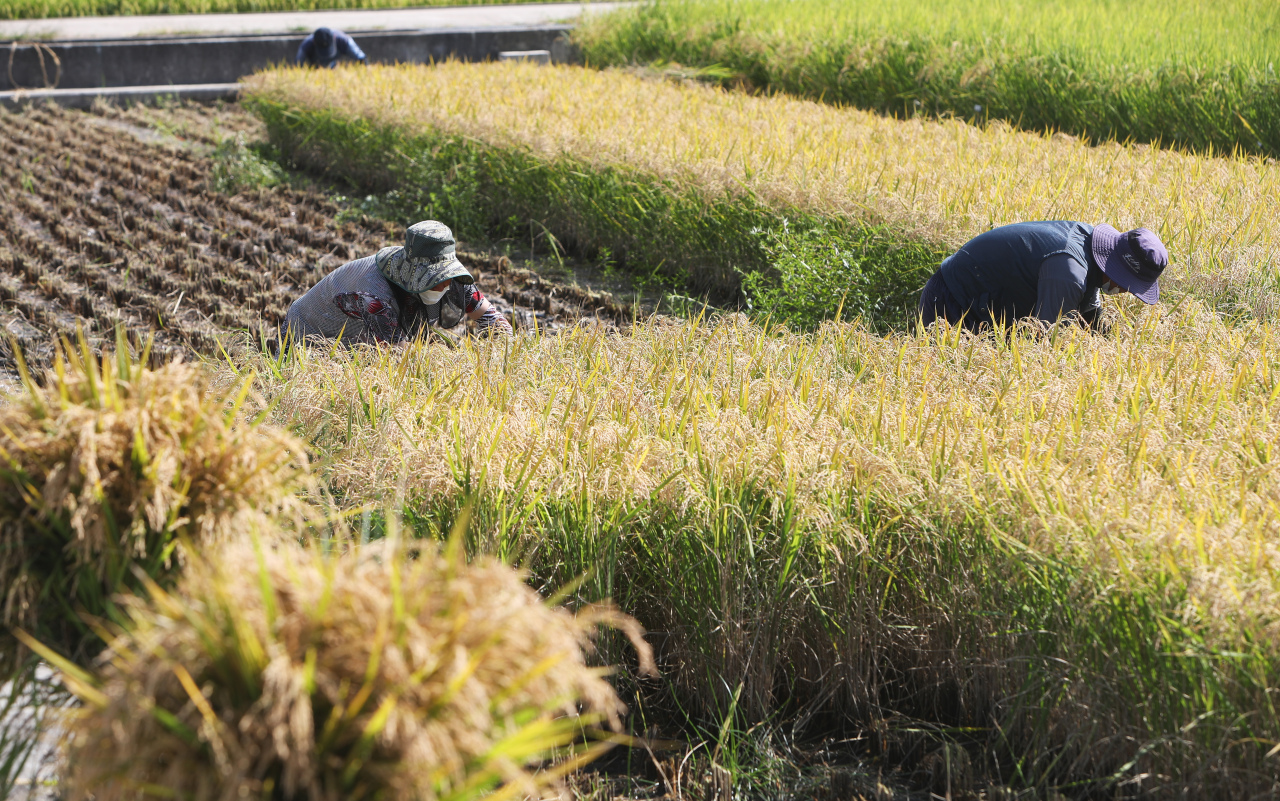Farmers struggle with dearth of foreign workers during harvest
By Shin Ji-hyePublished : Sept. 21, 2021 - 16:23

It is time to harvest, but farmers are facing a labor shortage due to a sharp drop in foreign arrivals caused by the pandemic.
Even prior to the pandemic, the Ministry of Justice has been implementing a foreign seasonal worker system since 2017 to combat the shortage.
In the first year of implementation, 1,085 people came in, and the number of entrants increased to 3,487 in 2019, but there were none last year when COVID-19 began to spread. This year, 504 people entered the country, and 1,018 foreigners staying in Korea were temporarily allowed to work as seasonal workers. But it is still insufficient, farmers say.
Local governments are trying to solve the issue by asking for help from the central government, sending volunteers or officials to rural areas and improving living conditions for foreign workers.
The South Jeolla provincial government is urging the ministries of justice and agriculture to relax immigration regulations for foreign workers. It also plans to mobilize more than 2,000 officials of local public institutions to help farmers. More than 39,000 people will also be sent from military units, colleges and volunteer centers.
Cheongyang, a county in South Chungcheong Province, sought to solve the labor shortage issue with Uzbekistan’s Labor Ministry. This month, the local government signed an agreement with the ministry to deploy workers to Korea. The rural county struggles with a serious shortage of about 40,000 people a year.
Under the agreement, the local government has also pledged to protect Uzbekistan workers’ human rights and provide safe residence. Uzbekistan’s Labor Ministry will be responsible for selecting and educating the workers as well as immigration administration. The agreement is valid for three years and is automatically extended upon expiry.
Gangwon Province plans to roll out “measures to improve working conditions for foreign workers in the agricultural sector” to protect the human rights of foreign workers and resolve the shortage of farmers.



















![[Today’s K-pop] Treasure to publish magazine for debut anniversary](http://res.heraldm.com/phpwas/restmb_idxmake.php?idx=642&simg=/content/image/2024/07/26/20240726050551_0.jpg&u=)